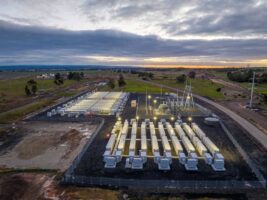The Hawaiian Electric Companies group has launched one of America’s largest renewable energy procurement bids, to end the use of coal across the US islands and meet the state’s goal of 100 per cent renewable energy by 2045.
Pending the approval of the Public Utilities Commission, the HEC group issued requests for proposals for renewable energy and grid services from developers for approximately 900MW of new renewables or renewables plus storage – enough to generate around 2 million MWh each year.
More than being Hawaii’s largest renewable energy procurement effort, it is believed this new request for proposals is one of the single largest such procurements undertaken by any US utility.
“Hawaiian Electric has made huge strides toward our renewable energy goals and will end this year achieving a renewable generation portfolio of 30 percent,” said Alan Oshima, president and CEO of Hawaiian Electric.
“This effort is a big step in accelerating the transition from fossil fuels to locally-sourced clean energy resources. For customers, the benefits are simple: cleaner energy at lower prices.”
The requests for proposal must meet some specific requirements, depending on which Hawaiian island is in view. Projects for Maui must include energy storage, and solar projects on Hawaii Island must include storage – but non-solar renewable projects do not necessarily need to pair with storage.
Pairing storage with generation on Oahu is optional. Storage on Oahu and Maui is, nevertheless, being sought to replace firm generating units, but this could also be provided by renewable generation paired with storage or standalone storage. Contingency storage is also being sought for Oahu and Hawaii Islands.
In total, estimated targets amount to 594 MW of solar for Oahu, 135 MW for Maui, and up to 203 MW for Hawaii Island (depending on whether other renewable energy projects are available on that island).
On Oahu, new renewable generation and storage is required to replace the 180MW coal-fired AES Hawaii plant in Campbell Industrial Park which is currently scheduled to close by September 2022. Currently, this coal project is the single-largest generator on Oahu and meets 16 per cent of peak island demand, meaning that any replacement will have to be able to provide dispatchable and reliable supply.
Across the waters on Maui, new renewable generation and storage is needed for the scheduled retirement of the 37.6 MW Kahului Power Plant which is set to happen before the end of 2024.
The Hawaiian Electric Companies also filed a separate request for proposals which is focused on securing grid services from customer-sited distributed energy resources, to help system operators better manage a modern electric grid with diverse, dynamic inputs and outputs.
That request for proposals is seeking grid services such as fast frequency response and capacity for Oahu, Maui, and Hawaii Islands, with targets ranging from 4 MW to 119 MW.
“This will create an opportunity for customers to play a direct role in modernizing the electric grid and integrating more renewable energy,” Hawaiian Electric Companies said in their press release.
This latest request for proposals comes just over half a year after the Hawaiian Electric Companies submitted contracts for seven grid-scale solar-plus-storage projects which will add approximately 262MW of solar energy and 1,048 MWh of energy storage to the Hawaiian Islands.
The company boasted in January that the seven projects were part of the largest and lowest-cost portfolio of new renewable energy resources ever to be assembled in Hawaii. The seven projects will be spread out over the islands of Oahu (3), Maui (2), and Hawaii Island (2).
In addition to the scale of the procurement, the seven projects hit headlines around the world thanks in part to record-breaking low costs – with prices ranging from 12 US-cents per kilowatt-hour to a record-breaking $0.08/kWh.










